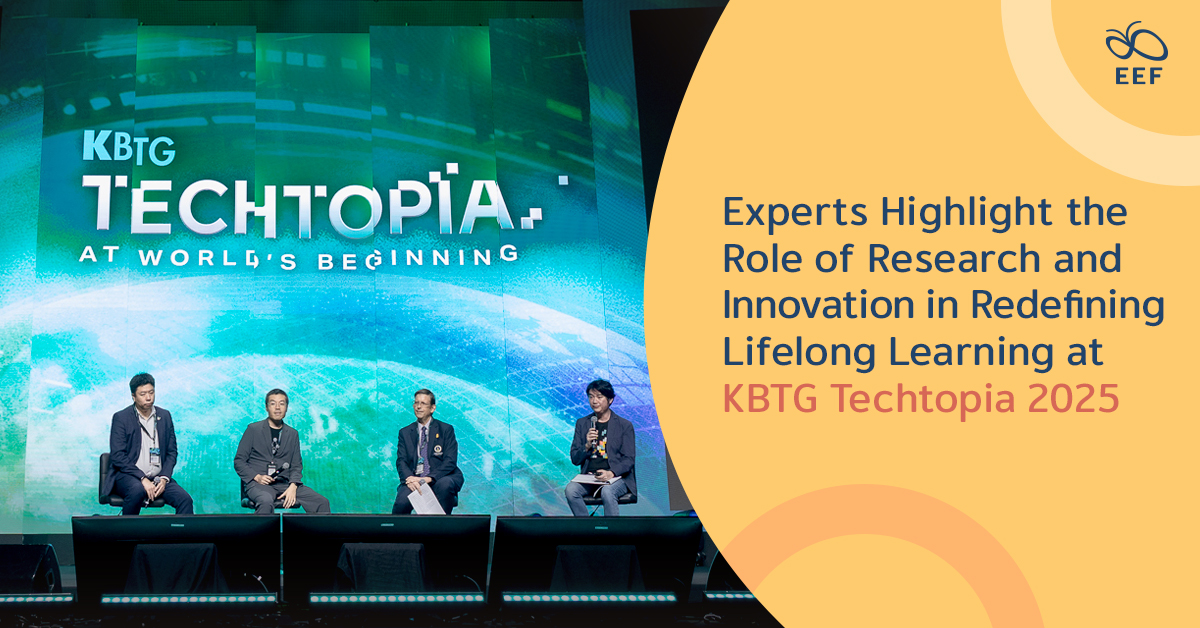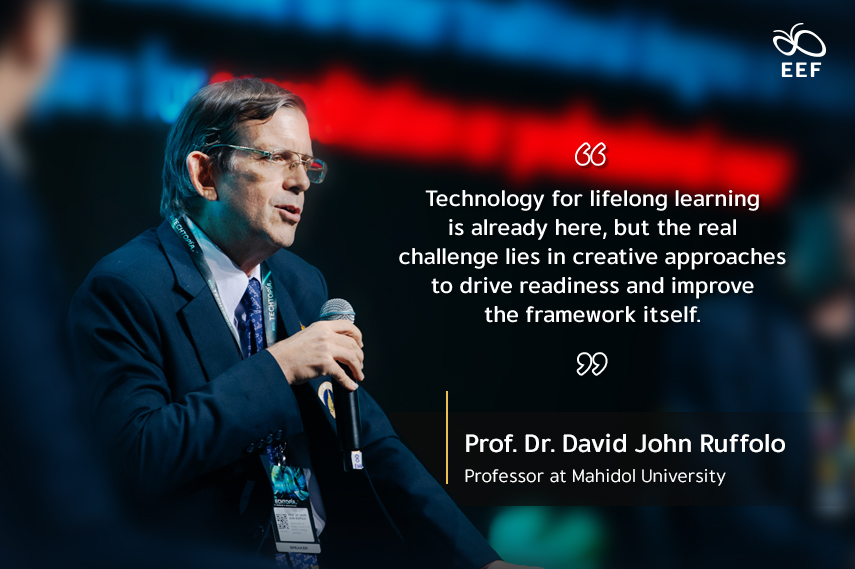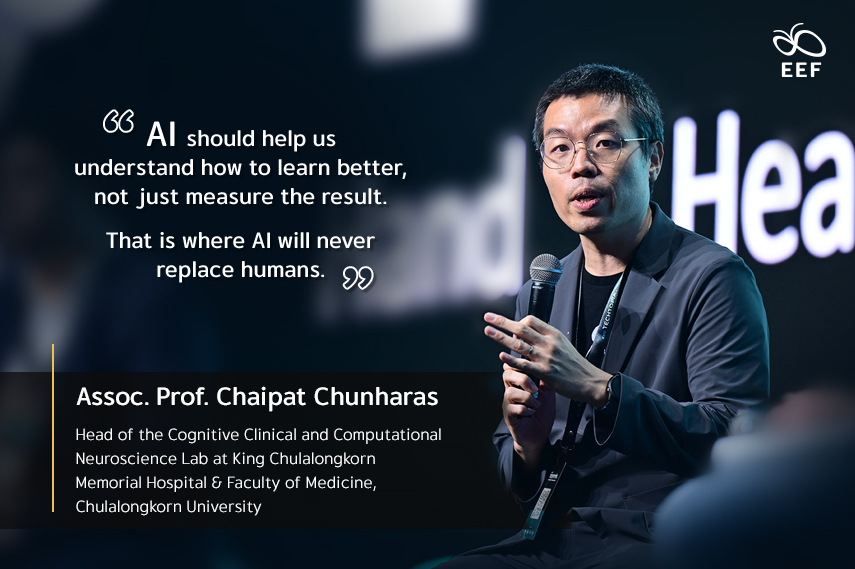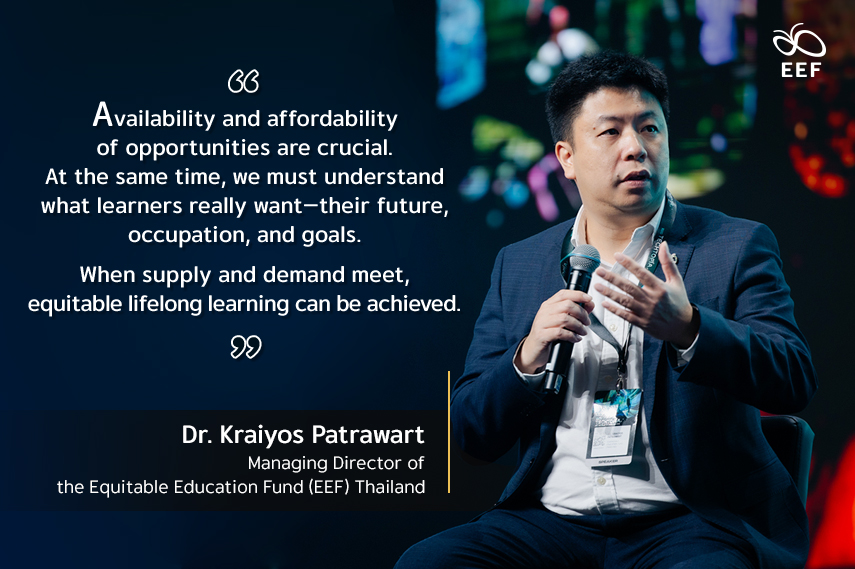
At KBTG Techtopia 2025, a session titled “How Research and Innovation are Redefining Lifelong Learning” brought together leading experts to share perspectives on the challenges and opportunities in building equitable lifelong learning systems.

Prof. Dr. David John Ruffolo, Professor at Mahidol University, stressed the importance of non-formal education and training, while noting that technology alone cannot close existing education gaps.
“Technology for lifelong learning is already here, but the real challenge lies in creative approaches to drive readiness and improve the framework itself.”

Assoc. Prof. Chaipat Chunharas, Head of the Cognitive Clinical and Computational Neuroscience Lab at King Chulalongkorn Memorial Hospital & Faculty of Medicine, Chulalongkorn University, pointed out that access to online courses is only the beginning. True lifelong learning must go beyond information to inspire passion and growth.
“There are three layers of learning: easy to find, do something about it, and the hardest—apply it meaningfully. Learners need passion, a growth mindset, and the ability to go beyond materials toward future aspirations.”
He also emphasized that AI should be applied to enhance learning processes rather than replace human intelligence.
“AI should help us understand how to learn better, not just measure the result. That is where AI will never replace humans.”

Dr. Kraiyos Patrawart, Managing Director of the Equitable Education Fund (EEF) Thailand, highlighted the link between education outcomes and socio-economic factors, from household income to health and skills development. He emphasized that both the supply and demand sides of learning must be addressed to ensure inclusivity.
“Availability and affordability of opportunities are crucial. At the same time, we must understand what learners really want—their future, occupation, and goals. When supply and demand meet, equitable lifelong learning can be achieved.”
He further underlined the role of AI research in shaping equitable systems.

“AI is capital intensive, but we must ensure it brings shared prosperity. Creating AI systems with people, data, models, empathy, and ethics—and linking research to policy—will be essential.”
Key Takeaways
- Prof. Dr. David John Ruffolo: Diversity of learning experiences is key for global competitiveness.
- Assoc. Prof. Chaipat Chunharas: AI should enhance learning processes, not replace human intelligence.
- Dr. Kraiyos Patrawart: AI must support equitable education systems from early childhood to higher education, ensuring no one is left behind.
This event reaffirmed that “lifelong learning” is not merely a concept, but a crucial mission that requires collaboration across all sectors. By harnessing the power of research and innovation, it is possible to build a learning system that is equitable, inclusive, and responsive to the transformations of the modern world. The insights and exchanges from KBTG Techtopia 2025 are expected to serve as both an inspiration and a catalyst for collaboration to advance education in Thailand and to empower learners for a sustainable future.

